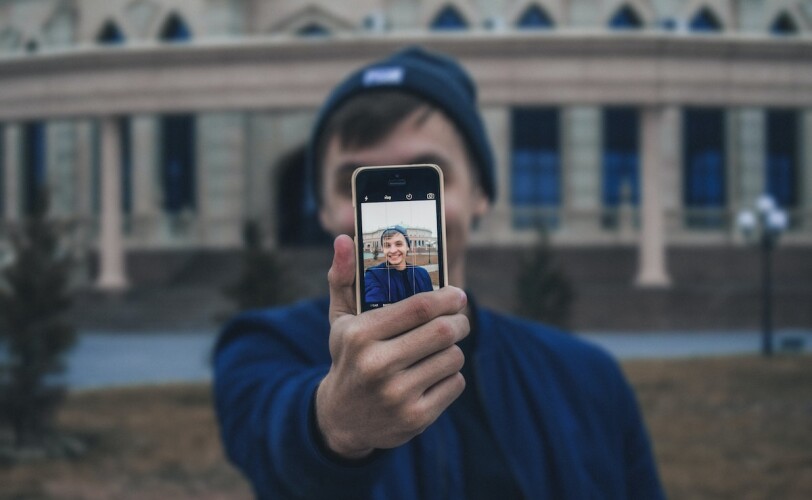The effects of social media
Have you noticed that you spend too much time on social media? Or noticing it having a negative mental effect on you?

According to We Are Social and Statista, half of the global population are on social media and 66% of the UK population are on social media. With these vast numbers of people using this form of media, it is important to understand how it is affecting us.
According to the Canadian Mental Health Association, school children aged 12-18 who spent over two hours a day on social media reported higher rates of depression, anxiety and suicidal thoughts. Many studies have also linked high social media use with lower self-esteem, loneliness and self-harm. We also know that females tend to spend more time on social media and are more likely to experience the negative effects.
Here are four explanations as to why a high amount of time spent on social media has a detrimental effect on mental health:
Highlight reel
When we post on social media, we are posting a collection of our best moments, time spent at parties, the best moments from our holidays, etc. There is a focus on displaying perfection. We, therefore, are constantly comparing ourselves to others and it becomes easy to fall into jealousy and insecurity. It can also be very easy to fake a good “highlight reel”, they may be incredibly unhappy in life or having a terrible time at a party yet can still post pictures which say the opposite. Again, increasing insecurity and jealousy because we get the impression that everyone else's life is perfect.
Social currency
We have created a social currency on social media in how many likes, shares and comments we get on our posts. It is the economy of attention. People will even take a post down because it isn't receiving enough likes and post at the best time of the day.
The way this affects us is we attribute too much value to this social currency and become less able to value ourselves, feeling only that we are attractive, slim, etc; when we are “rich” on social currency. Making you vulnerable to low self-esteem because you end up relying on others to measure your self-worth and not learning to value yourself.
Fear of missing out (FOMO)
FOMO in terms of social media means fear of missing an opportunity for social connection or interaction, i.e. a party. Social anxiety-inducing, because you are or will miss out on an opportunity for social interaction. According to Bailey Parnell, a study in the USA found 7/10 students would get rid of their social networking accounts if it weren't for a fear of being left out of the loop.
Online harassment
40% of adults have experienced online harassment and 73% have witnessed it, Bailey Parnell reports. You are also significantly more likely to experience online harassment if you are not a straight, white male. In the extreme cases, there is cyberbullying, however, if you also experience regular micro-moments of harassment it can build up to a macro-problem (i.e. insecurity).
Other detriments
It is not uncommon to show symptoms relating to addiction. Receiving a hit of dopamine on each “like” we get, anxious to check our notifications. Also when we become obsessed with posting, we can spend several minutes trying to find the perfect picture of a beautiful sunset to post. However, these micro-moments will build up to a life that has not been fully lived.
The key thing to remember from these detriments is these are most commonly experienced by people who overuse social media.
The good side of social media
Social media gets a lot of bad press, however, it is incredibly practical, you can socialise with your friends and family and you can follow celebrities and role models you admire. And if you practice good use of your social media, it can benefit your mental health.

Ways to improve your time spent on social media:
Recognising
Simply recognising the dangers of social media, makes you much less likely to experience the negative symptoms and behaviours.
Being educated
The apparent “perfect” life people portray on their social media pages isn't true. Make it a priority to learn how your self-worth comes from within, how to exercise gratitude and how to protect yourself from harassment.
Audit your social media
Observing your reactions to things on social media, “did that make me feel better or worse?” and measuring how much time you're actually spending on it.
Create a better online experience
Follow people and pages which give you positive experiences and unfollow things which give you negative experiences. And if you are spending too much time on social media, reduce your usage. Use social media as a tool and not something to binge.
Model good behaviour
Not posting to make people jealous, not harassing anyone, educating others on how to use social media and using social media to benefit your social life; talking to friends and family and even creating online friends.
What are the effects of social media?
Generally speaking, we have learnt overuse of social media is a bad thing, it makes you more vulnerable to the detriments of social media we have discussed. Also, we have learnt females and minority groups are more vulnerable on social media. However, social media can affect us positively if used in the right way.
If you feel that you or someone you know has/is negatively affected by social media, hypnotherapy can treat your mental health, teach you how to use social media and make life more satisfying.

Find a hypnotherapist dealing with Depression
All therapists are verified professionals






